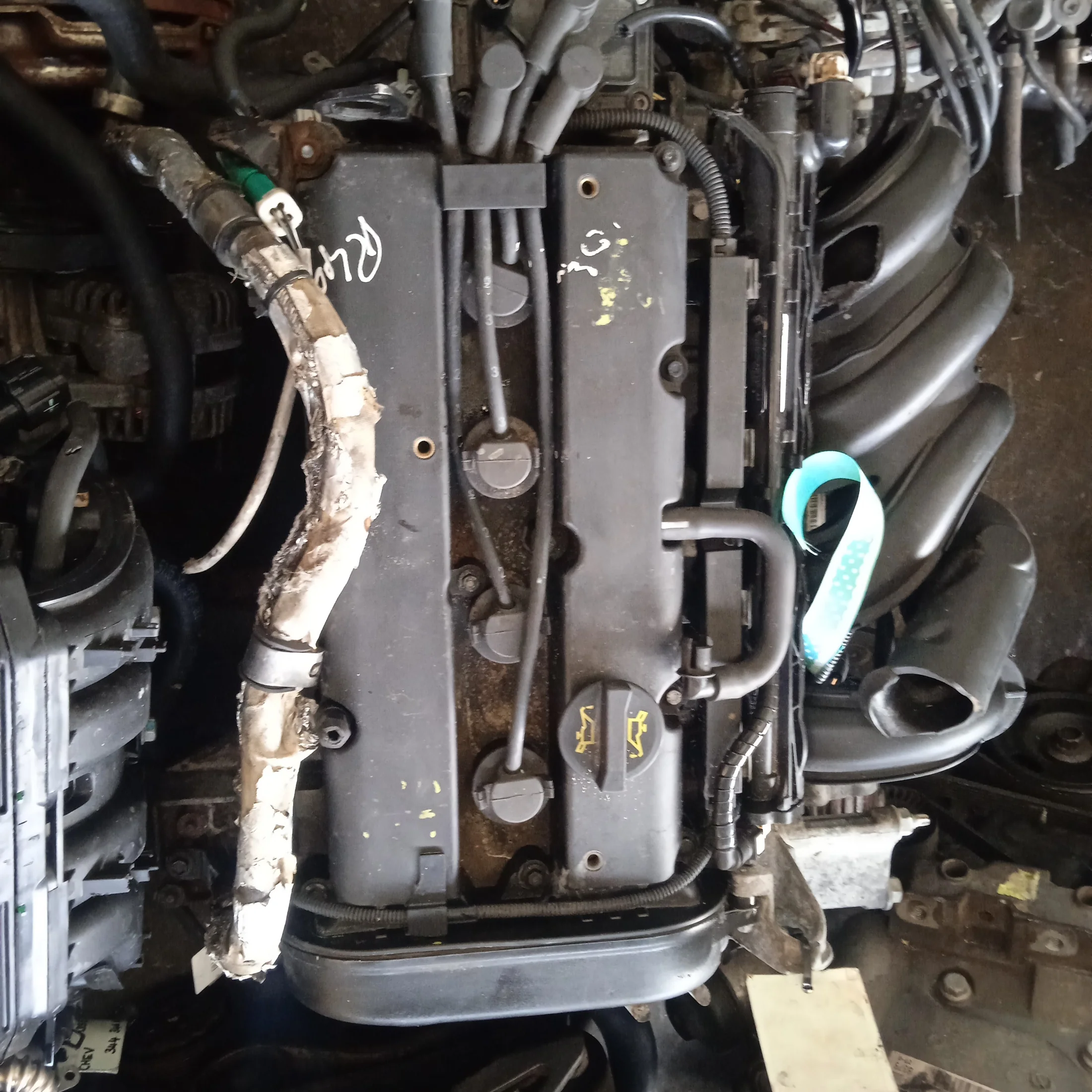Expert Tips for Optimizing Your Ford Fiesta Engine Efficiency
Expert Tips for Optimizing Your Ford Fiesta Engine Efficiency
Blog Article
Unlocking the Power of Engines: A Comprehensive Guide to Efficiency and Efficiency
Recognizing the detailed technicians of engines is important for both performance lovers and everyday chauffeurs. The solutions may redefine our method to engine efficiency and performance in ways that are both enlightening and crucial.
Comprehending Engine Basics
What makes up the fundamental technicians of an engine? At its core, an engine is a device created to convert fuel into mechanical energy through a collection of regulated explosions or combustion procedures.
The crankshaft after that transforms this direct movement right into rotational energy, which ultimately powers the lorry. The camshaft controls the opening and closing of the valves, managing the intake of air and fuel and the expulsion of exhaust gases. Additionally, the engine relies upon a carefully calibrated fuel-air combination, ignition system, and cooling down system to make certain optimal performance and performance.
Understanding engine basics likewise entails identifying the significance of engine cycles, such as the four-stroke cycle, that includes intake, compression, power, and exhaust strokes. Each stage is critical in ensuring the engine operates smoothly and effectively. Proficiency of these essential mechanics lays the groundwork for checking out much more complicated engine dynamics and performance metrics, vital for enhancing both power outcome and efficiency.
Key Performance Metrics
Secret efficiency metrics are crucial for evaluating an engine's effectiveness and power outcome, giving useful insights for both manufacturers and consumers. These metrics function as standards for engine efficiency, permitting informed choices in acquiring, layout, and manufacturing.
Among the main metrics is horsepower, which evaluates the engine's capacity to carry out job over time. Torque, gauged in pound-feet, is another essential metric that indicates the engine's rotational force, directly influencing acceleration and lugging ability. Gas effectiveness, normally measured in miles per gallon (MPG) or litres per 100 kilometers (L/100km), evaluates just how effectively the engine transforms gas into movement, affecting operational expenses and ecological considerations.
In addition, thermal effectiveness actions just how well an engine converts gas energy right into beneficial work, disclosing understandings into power losses mostly via warmth. Discharge degrees, including carbon dioxide and NOx, are also essential, mirroring the engine's ecological impact and conformity with regulatory criteria.

Tuning Strategies for Performance
Tuning strategies play a substantial role in improving engine performance by optimizing efficiency metrics identified in earlier conversations (ford fiesta engine). Different techniques exist to adjust an engine, each adding to boosted gas economy and decreased exhausts
One effective technique is adjusting the air-fuel ratio, ensuring the engine operates within the optimal burning routine. A leaner mix can boost fuel efficiency, yet it must be stabilized to stop misfires or engine knock. Additionally, reprogramming the engine administration system can rectify specifications such as ignition timing, which further enhances effectiveness while keeping power outcome.
One more crucial strategy involves modifying the consumption and exhaust systems. Upgrading to high-performance air filters and exhaust headers can lower back stress, promoting far better air movement. This permits the engine to breathe more easily, bring about improved burning effectiveness.
In addition, the application of innovative tuning tools, like dyno testing, offers exact data that enables targeted adjustments. Routinely keeping an eye on these performance metrics makes sure that tuning initiatives yield the wanted performance results. Jointly, these strategies not only reinforce engine performance however also add to long-lasting sustainability in engine operations.
Maintenance for Optimum Performance
Regular engine maintenance is crucial for accomplishing ideal performance and longevity. A properly maintained engine not only runs effectively yet also lessens the danger of expensive fixings and failures. Secret parts calling for regular interest include oil, filters, belts, and trigger plugs.
Altering the engine oil at advised periods is important, as oil lubes moving components and prevents getting too hot. In more information a similar way, replacing oil and air filters ensures that contaminants do not harm engine feature. Ignoring these components can result in reduced effectiveness and potential engine damages.
Additionally, examining and replacing used belts and pipes is important to stop abrupt failings. Timing belts, specifically, ought to be changed according to the producer's routine to avoid devastating engine damages.
Ignition system ought to also be checked and replaced as necessary, because they play a critical duty in ignition and fuel effectiveness.
Future Trends in Engine Modern Technology
Accepting advancements in innovation, the future of engine layout is poised to reinvent efficiency and efficiency across different applications. Hybrid and fully electrical powertrains are ending up being progressively traditional, supplying reduced emissions and improved gas performance.
Additionally, innovations in materials scientific research are resulting in lighter, stronger components that improve engine efficiency while lowering energy consumption. Advanced production strategies, such as 3D printing, enable the development of complicated geometries that improve airflow and thermal management, therefore maximizing combustion procedures.
Additionally, the integration of synthetic intelligence and maker learning is set to change engine diagnostics and performance adjusting. These modern technologies can analyze huge amounts of information in real time, making it possible for predictive maintenance and customized efficiency enhancements.
Verdict
In conclusion, opening the power of engines needs a thorough understanding of their mechanics and efficiency metrics. Implementing efficient tuning strategies and adhering to routine maintenance methods considerably improve try this site engine capacities.
In addition, the engine depends on a carefully adjusted fuel-air combination, ignition system, and cooling down system to make sure optimum efficiency and efficiency.
Understanding engine fundamentals additionally includes recognizing the importance of engine cycles, such as the four-stroke cycle, which includes consumption, exhaust, compression, and power strokes. Proficiency of these fundamental technicians lays the foundation for discovering Learn More much more complex engine characteristics and performance metrics, crucial for enhancing both power outcome and performance.

Accepting improvements in innovation, the future of engine style is positioned to reinvent performance and performance throughout different applications.
Report this page